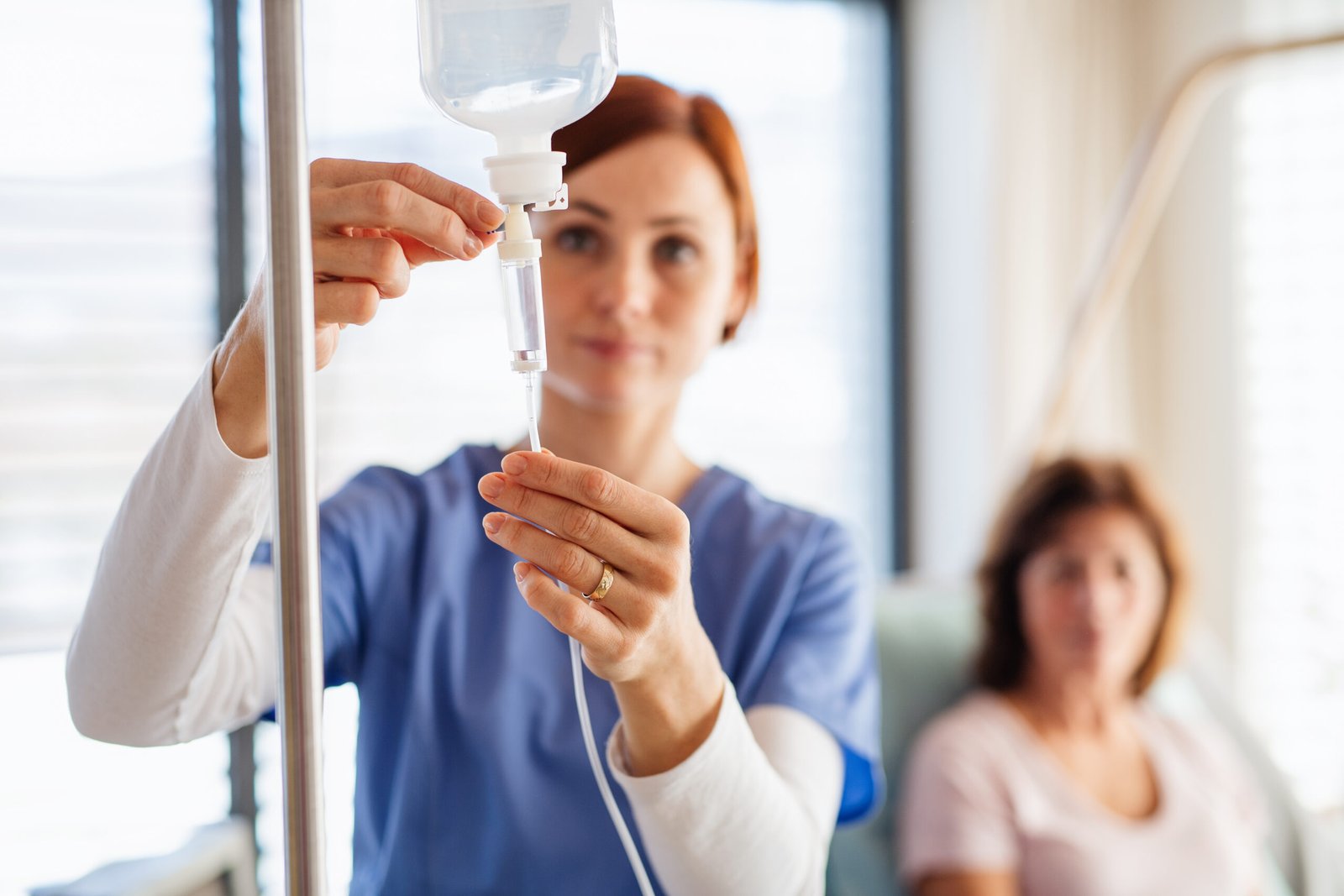Fertility
In young, healthy couples who have sexual intercourse once or twice a week or targeted intercourse during the fertile time, pregnancy occurs in about 20-25% of cycles. After one year, this is successful in 80-90%. If pregnancy still does not occur, this is called sterility, and a structured search for organic or hormonal causes should be initiated. It is helpful to know that the vast majority of causes of an unfulfilled desire to have children can be treated very well today. However, it is not always easy to choose the right path at the right time.
Topics on this page
- Unfulfilled desire to have children
- What is needed for the desire to have children
- What you will find here
- Natural fertility
- Children yes - but later: freezing eggs / Social Freezing
- Protecting fertility for medical reasons - Fertility preservation
- All tests are normal - but you are not getting pregnant? | Idiopathic sterility
- Problems during fertility treatment (IVF / ICSI / PICSI / TESE)
- FAQ
Fertility Issues
An unfulfilled desire to have children is one of the most common reasons why couples visit a specialized gynecological or endocrinological practice. Often, the wish for a child of one’s own has existed for many months or even years without a pregnancy occurring. This can lead to disappointment, pressure in the relationship, and self-doubt. It is therefore all the more important to know that in most cases concrete causes can be identified and often treated well.
In young, healthy couples who have sexual intercourse once or twice a week or targeted intercourse during the fertile time, pregnancy occurs in about 20-25% of cycles; after one year, this is successful in 80-90%. If pregnancy still does not occur, this is called sterility and a structured search for organic or hormonal causes should be undertaken.
This includes, for example, disorders of egg maturation and ovulation, diseases of the fallopian tubes or uterus, or limitations in sperm quality. Lifestyle factors such as severe overweight, smoking, or chronic stress can also additionally impair fertility.
The basis of any fertility workup is a detailed consultation in which cycle patterns, past illnesses, operations, and previous experiences are discussed. This is followed by simple examinations such as hormone tests, cycle and ovulation diagnostics, ultrasound of the uterus and ovaries, as well as a semen analysis. These initial steps often provide clear indications of which factors are preventing pregnancy. Only once this basic diagnostic workup is complete are more complex measures such as assessment of the fallopian tubes by contrast ultrasound or laparoscopy necessary.
If you have any personal questions on results of your hormonal data or other diagnostic procedures, or if you would like an independent second opinion, I am happy to offer a personal and independent online-consultation.
What you will find here
Natural fertility

Natural fertility
In young, healthy couples who have sexual intercourse once or twice a week or once or twice during the fertile days, pregnancy should occur in 20-25% of cycles and in 80-90% after one year. If pregnancy has not occurred after one year, this is clinically called sterility (infertility), and in the vast majority of these cases, organic causes are present. Since many causes of sterility can be treated very well today, evaluation of possible causes is recommended at the latest at this point – ideally following a stepwise scheme: initially simple examinations (such as semen analysis, hormone tests, cycle and ovulation diagnostics) should be performed, and if necessary further examinations, for example of the fallopian tubes (by contrast ultrasound or laparoscopy with chromopertubation).
If you have any fertility issues or general questions about further diagnostics, you will find many details answered in the interview (for the fertility congress). In addition, you will find below a number of possible detailed topics that may be of interest to you.

Children yes - but later: freezing eggs / Social Freezing

Children yes - but later: freezing eggs / Social Freezing
Protecting fertility for medical reasons - Fertility preservation

Protecting fertility for medical reasons - Fertility preservation
In view of a possibly threatening premature aging of the ovaries and before treatment with fertility-damaging medications or radiation therapy, it is fortunately possible today to protect fertility through fertility preservation: The treatment of cancer and some chronic autoimmune and rheumatological diseases can significantly impair the number and function of female and male germ cells (eggs and sperm). Accordingly, after a chemotherapy or radiation therapy, an early or even immediately onset menopause with more or less pronounced infertility is not uncommon. Using modern methods (hormone treatment/freezing of germ cells, possibly also freezing of ovarian or testicular tissue), it is now possible to reduce or largely avoid the negative effects of chemo- and radiation therapies. Decisive here is above all early consultation and planning.
At LMU-Munich University university Fertility Center, I have consultet and supported many patients before, during and after cancer treatment and cared for them. I have summarized some important aspects in the attached lecture as part of the Patient Academy of the LMU Clinic.
Beyond that, I offer you an individual and detailed online consultation. Here I can gladly share my extensive experience in fertility preservation with you, to answer any questions individually and independently about the process, chances and possible side effects of all fertility-preserving measures. or if you think, you might experience signs or symptoms of early reproductive aging or early menopause, I am happy to offer a personal and thorough online-consultation.

All tests are normal - but you are not getting pregnant? | Idiopathic sterility

All tests are normal - but you are not getting pregnant? | Idiopathic sterility
How long should you keep trying? What are the chances that it will still work? Are there any meaningful alternatives to artificial insemination? What can increase natural pregnancy chances?
By means of a few questions about you, your partner and previous findings, I can help you to estimate the concrete chances of a spontaneous pregnancy within the next few months. I would be happy to offer you a very individual and independent consultation on all possible optimization options: What makes sense in relation to the fertile days? What are the actually fertile days? And how and with what reliability can these be determined? What makes sense for vitamins, nutritional supplements and special diets – for prospective mothers and fathers?
Problems during fertility treatment (IVF / ICSI / PICSI / TESE)

Problems during fertility treatment (IVF / ICSI / PICSI / TESE)
Not enough eggs are obtained (Diminished Ovarian Response DOR): When preparing for artificial insemination, the aim is typically to mature as optimal a number of follicles as possible: on the one hand, as many as possible – to increase the pregnancy chance, but on the other hand, not too many – as this increases side effects and the burden of treatment. An optimal number of matured follicles typically lies in the range of 7 to 14, as this usually achieves high pregnancy chances with overall low side effects. When the number of maturing eggs is significantly reduced, this is called a diminished ovarian response (DOR). The most common cause of too few eggs (DOR) is a reduced ovarian reserve, usually in connection with – possibly premature – reproductive aging (if interested, you can also read more details in the section Hormones – Aging of the Ovaries). Occasionally, other special hormonal constellations (including birth control pills in long cycles, high-dose progestin administration, use of GnRH super-agonists) can explain a reduced ovarian response. Fundamentally, optimized stimulation methods (type of protocol, type and dosage of stimulation medications) or suitable pretreatment (cyclical hormone administration, possibly also special vitamins and trace elements) can often help optimize the ovarian response and thus the number and possibly also the quality of the eggs. I am happy to discuss your personal situation and may be help in optimizing reults of your reproductive treatment.

FAQ
In young, healthy couples with regular sexual intercourse, the pregnancy rate is about 20-25% per cycle. After one year, 80-90% of couples have achieved pregnancy naturally. If pregnancy does not occur, a structured investigation is recommended.
At the latest after one year of regular sexual intercourse without pregnancy, an investigation should follow. For women over 35 years or with known pre-existing conditions, an evaluation is recommended after six months.
Basic diagnostics include semen analysis for the man, hormone tests, cycle and ovulation diagnostics, and ultrasound for the woman. If necessary, additional examinations such as assessment of the fallopian tubes can be performed.
Depending on the cause, various treatment options are available: from hormone treatments to support ovulation to intrauterine insemination (IUI) to advanced reproductive techniques such as IVF or ICSI.
A healthy lifestyle supports fertility: balanced nutrition, normal weight, regular exercise, avoidance of smoking and moderate alcohol consumption. Also reducing stress through relaxation techniques can be helpful.
According to the World Health Organization, primary sterility exists when a couple regularly - about 2x per week - has unprotected and regular sexual intercourse and still no pregnancy has occurred after one year.
A key factor influencing the likelihood of pregnancy is the developmental capacity of the embryo at the time of transfer to the uterus. This is particularly favorable if an optimally developed blastocyst (grade 5AA) can be transferred on embryonic development day 5-6. This situation can be influenced by the following factors: the woman's age, the number and quality of the eggs retrieved, the fertilization rate, the quality of the sperm, the man's age (the latter has a relatively minor influence), and the morphokinetic characteristics of embryonic development. An additional possible influence is suspected to be the implantation chances of the uterine lining (receptivity) — but this is rather difficult to assess in individual cases. In addition to the routine use of implantation hormones (estrogens and progesterone), additional options for optimizing receptivity are still experimental.
Idiopathic sterility is when, despite comprehensive diagnostics, no identifiable physical cause for childlessness is found. All examinations show normal findings, yet pregnancy does not occur. In these cases, sometimes hypnosis and stress reduction can be helpful. If conservative measures are not successful, measures of assisted reproduction often lead to success.
Social Freezing refers to the voluntary freezing of eggs to retain the possibility of pregnancy later. This is particularly relevant for women who want to postpone childbearing for professional or personal reasons.
IVF (In-vitro Fertilization) is artificial fertilization outside the body, where eggs and sperm are brought together in the laboratory. ICSI (Intracytoplasmic Sperm Injection) is a further development, where a single sperm is injected directly into the egg.
Psychological health plays an important role in the desire to have children. Stress, anxiety, and emotional stress can negatively affect fertility. Conversely, relaxation techniques such as hypnosis can help.
For medical treatments such as chemotherapy or radiation therapy that can endanger fertility, fertility preservation offers options: the preventive freezing of eggs, sperm, or even tissue.
TESE (Testicular Sperm Extraction) is a microsurgical procedure for obtaining sperm directly from the testicular tissue. It is used in men who have no sperm in the ejaculate (azoospermia). The extracted sperm can then be used for ICSI.

Purely from a biological perspective, the best years for becoming pregnant and having children are the early twenties. In this phase of life, the eggs are the healthiest, and the number of follicles that mature each month is highest. In addition, the risk of miscarriage or chromosomally related abnormalities in the child (such as Down syndrome) is also lowest in this phase of life. However, in today’s world, having children during exactly this time is often quite difficult to realize for many different reasons: vocational training, financial considerations, lack of suitable housing, and not infrequently the absence of a suitable partner, to name just a few common issues. As a result, the “optimal” years for having children often pass by, and “later” can in individual cases indeed become “too late”. Modern reproductive medicine makes it possible today to retrieve “young” eggs and store them for later in frozen form (so-called social freezing). These processes have now been optimized and made so safe that many of the advantages of pregnancy at a young age (see above) can be used at a later point in life. Of course, there are many questions about this
Of course, there are many questions surrounding this topic:
• When is the best time for social freezing?
• Is it ever “too late” for social freezing?
• How does the whole process work? How much does it cost?
• How long can eggs survive in a frozen state?
• Is there any risk of damage?
• At what age can/should eggs be used/pregnancy be achieved at the latest?
• What are the subsequent chances of one (or more) live births?
Based on years of experience with egg freezing—for medical reasons (see below: fertility protection) or for personal life planning reasons (“social freezing”) I have assisted a large number of women and couples to find their optimal decision regarding protecting their fertility for later. If you would like to discuss any further questions with me in a personal and independent online consultation, I am happy to offer a personal and indepedent online-consultation.